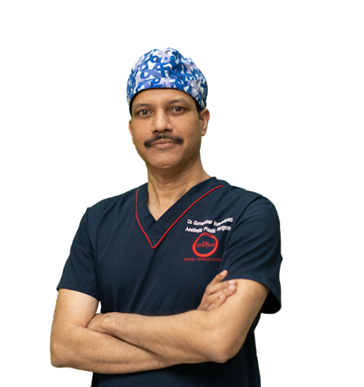

Nutrition & Dietetic
At Invivo Hospitals in Bangalore, Nutrition and dietetics are fields focused on understanding the relationship between food, nutrients, and human health, and using that knowledge to provide dietary recommendations and interventions to promote optimal health and prevent or manage various medical conditions.

Dietetics is the practical application of nutrition science. Registered Dietitians (RDs) or Registered Dietitian Nutritionists (RDNs) are trained professionals in dietetics who work with individuals and communities to provide personalized dietary advice and interventions. They use their knowledge of nutrition to design and implement nutrition plans that align with an individual’s health goals and medical conditions.
Clinical Dietitians: They work in hospitals, clinics, and other healthcare settings to assess and manage the nutritional needs of patients with various medical conditions like diabetes, heart disease, kidney disease, and more. They collaborate with healthcare teams to develop appropriate dietary plans.
Community Dietitians: They focus on promoting healthy eating habits and preventing nutrition-related diseases within communities. They might work in public health agencies, schools, or community centers, conducting workshops, seminars, and nutrition education programs.
Sports Dietitians: They specialize in providing nutrition guidance to athletes and active individuals to optimize performance, enhance recovery, and prevent injuries. They consider factors like training intensity, type of sport, and individual goals.
Pediatric Dietitians: They specialize in meeting the unique nutritional needs of infants, children, and adolescents. They work with parents and healthcare professionals to ensure proper growth and development.
Geriatric Dietitians: They focus on the nutritional needs of older adults, who often have specific dietary requirements due to age-related health issues.
Research Dietitians: These professionals contribute to nutrition research by designing studies, analyzing data, and interpreting findings to advance the field’s knowledge.
Becoming a registered dietitian typically requires a bachelor’s degree in dietetics or a related field, completion of a supervised internship or practical experience, and passing a national registration exam. Many dietitians pursue advanced degrees (master’s or PhD) and further certifications in specialized areas.
Good nutrition is integral to preventing and managing various health conditions, including obesity, diabetes, cardiovascular diseases, and more. Proper dietary choices can also play a significant role in enhancing mental health and overall quality of life.
Why Choose us?
We stand for reliance and trust. Our goal is to give our customers their confidence back
Highly Skilled Surgeon
100% Safe & Proven Practices
State of the art technology & Equipment
Affordable Pricing
Assured Results
Top Treatments
-
 Renal Health
Renal Health
-
 Protein Restriction
Protein Restriction
-
 Elimination Diets
Elimination Diets
-
 Protein Intake
Protein Intake
-
 Hydration Strategies
Hydration Strategies
-
 Pre- and Post-Workout Nutrition
Pre- and Post-Workout Nutrition
-
 Low FODMAP Diet
Low FODMAP Diet
-
 Heart Health
Heart Health


